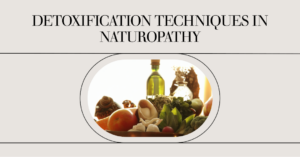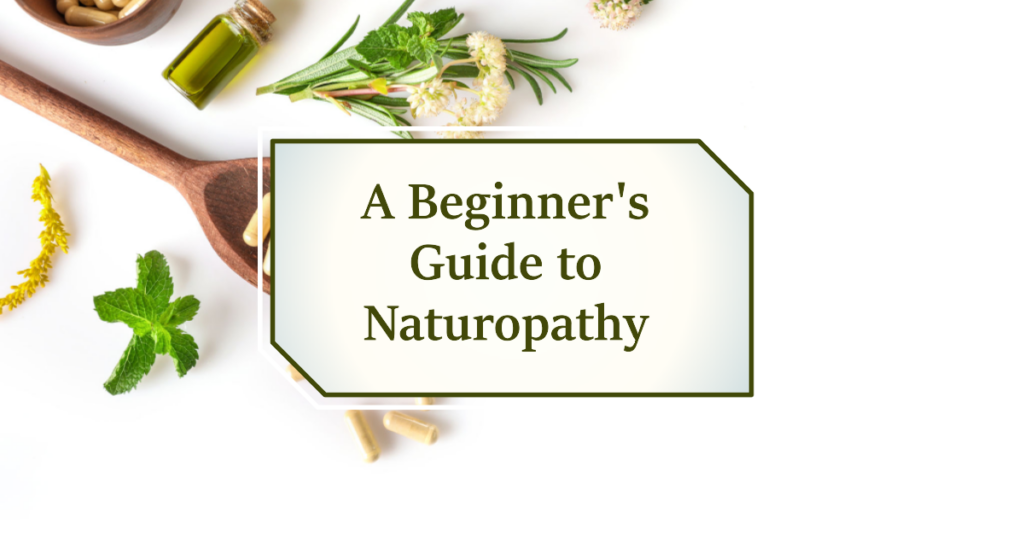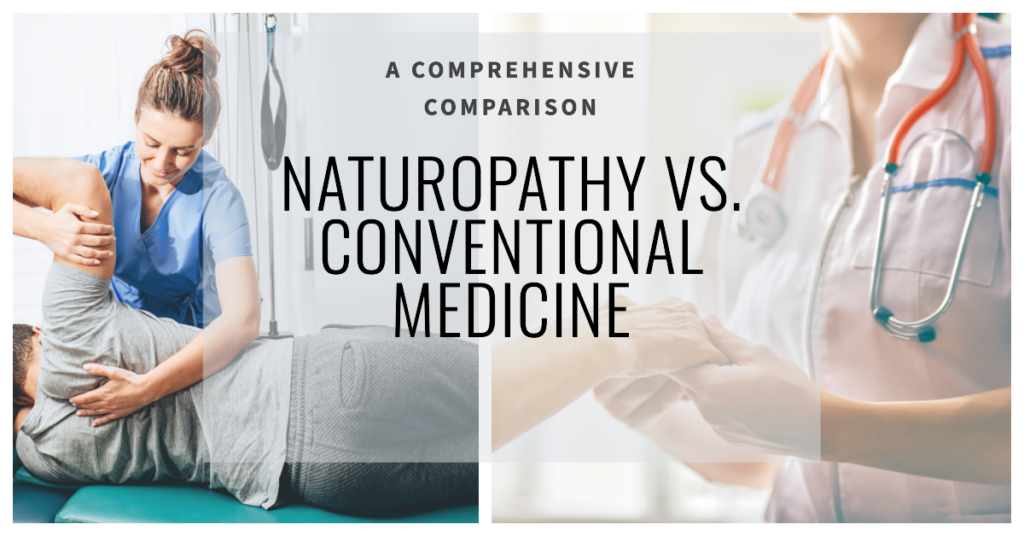Naturopathy: Principles, Practices, and Benefits of Healing Naturally

Naturopathy is a holistic approach to health and wellness that emphasizes the body’s inherent ability to heal itself. It combines traditional healing methods with modern scientific knowledge to promote optimal health and prevent disease.
Naturopathy encompasses a wide range of therapies, including nutrition, herbal medicine, physical therapies, and lifestyle counseling.
In this comprehensive guide, we’ll explore the principles and practices of naturopathy and discover how it can revolutionize your health and wellness journey.
The Historical Roots of Naturopathic Medicine
Naturopathy has its roots in ancient healing traditions from around the world, including Ayurveda, Traditional Chinese Medicine, and Greek Hippocratic medicine. The modern naturopathic movement emerged in the late 19th and early 20th centuries, led by pioneers such as Benedict Lust and Sebastian Kneipp.
These early practitioners emphasized the importance of natural living, clean air and water, and a balanced diet for optimal health. Today, naturopathy continues to evolve, integrating the latest scientific research with time-honored healing practices.
The Core Principles of Naturopathy: A Closer Look
Naturopathy is guided by a set of core principles that inform its approach to health and healing. These principles include:
- The Healing Power of Nature: The body has an innate ability to heal itself and maintain balance.
- First Do No Harm: Naturopathic practitioners use gentle, non-invasive therapies to support the body’s healing processes.
- Identify and Treat the Cause: Rather than merely addressing symptoms, naturopathy seeks to identify and address the underlying causes of illness.
- Treat the Whole Person: Naturopathy considers the physical, mental, emotional, and spiritual aspects of an individual’s health.
- Prevention: Naturopathy emphasizes the importance of preventing disease and promoting wellness through healthy lifestyle choices.
- Doctor as Teacher: Naturopathic practitioners educate and empower individuals to take responsibility for their own health.
Comparison of Naturopathic Medicine and Conventional Medicine
| Aspect | Naturopathic Medicine | Conventional Medicine |
|---|---|---|
| Approach | Holistic, addressing the whole person (physical, mental, emotional, and spiritual aspects) | Focuses primarily on physical symptoms and conditions |
| Goal | Identify and address the root causes of illness and promote overall wellness | Diagnose and treat specific diseases and conditions |
| Therapies | Nutrition, herbal medicine, physical therapies, lifestyle counseling, and more | Pharmaceuticals, surgery, and other medical interventions |
| Principles | Healing power of nature, first do no harm, treat the whole person, prevention, etc. | Evidence-based medicine, diagnosis and treatment of diseases |
| Role of Practitioner | Educator and guide, empowering individuals to take responsibility for their health | Expert and authority, prescribing treatments and interventions |
Naturopathy offers a holistic and integrative approach to health and wellness, complementing conventional medicine in promoting optimal health. By embracing the principles and practices of naturopathy, individuals can embark on a transformative journey toward greater health, vitality, and well-being.
The Healing Power of Nature: Naturopathic Nutrition and Metabolism
Naturopathic medicine is founded on the principle of “Vis Medicatrix Naturae,” or the healing power of nature. This principle acknowledges the body’s innate ability to heal itself when given the right conditions and support. Nutrition is a key component of this healing process, as it provides the building blocks for cellular repair, energy production, and overall well-being. In this section, we explore the role of nutrition and metabolism in naturopathic medicine and how naturopaths use dietary interventions to promote health and healing.
The Foundations of Naturopathic Nutrition
Naturopathic nutrition emphasizes the consumption of whole, unprocessed foods that are rich in essential nutrients. These foods are believed to support the body’s natural healing processes and provide the necessary fuel for optimal metabolic function. The foundations of naturopathic nutrition include:
- Macronutrients: Macronutrients are the primary sources of energy for the body and include carbohydrates, fats, and proteins. Naturopaths recommend a balanced intake of these nutrients to support energy production, tissue repair, and overall health.
- Micronutrients: Micronutrients are vitamins and minerals that play crucial roles in various metabolic processes. They are required in small amounts but are essential for optimal health. Naturopaths emphasize the importance of obtaining micronutrients from a diverse and nutrient-dense diet.
- Hydration: Proper hydration is essential for maintaining metabolic balance and supporting detoxification processes. Naturopaths recommend drinking adequate amounts of clean water and consuming water-rich foods to maintain hydration levels.
- Mindful Eating: Mindful eating practices encourage individuals to be present and attentive during meals, savoring each bite and listening to the body’s hunger and satiety cues. This approach fosters a healthy relationship with food and supports optimal digestion and nutrient absorption.
Metabolic Processes and Interactions
The body’s metabolic processes are responsible for converting food into energy and supporting various physiological functions. Naturopathic practitioners recognize the complexity of these processes and the importance of supporting metabolic health through nutrition. Key aspects of metabolism in naturopathic nutrition include:
- Energy Metabolism: Energy metabolism refers to the biochemical processes that produce energy in the form of adenosine triphosphate (ATP). This energy is used to fuel cellular activities and maintain homeostasis. Naturopaths support energy metabolism by providing the necessary macronutrients and micronutrients required for ATP production.
- Nutrient Interactions and Metabolic Pathways: Nutrients interact with one another and influence various metabolic pathways. For example, certain vitamins and minerals act as cofactors for enzymatic reactions, while others play a role in hormone synthesis and regulation. Naturopaths consider these interactions when designing personalized nutrition plans.
- Detoxification Pathways: The body’s detoxification pathways are responsible for eliminating waste products and toxins. Proper nutrition supports these pathways by providing the necessary nutrients for liver function, antioxidant activity, and elimination.
The Role of Nutrition in Naturopathic Healing
Naturopathic practitioners use nutrition as a powerful tool for healing and disease prevention. By addressing nutritional imbalances and supporting metabolic health, they aim to restore the body’s natural healing capacity and promote overall well-being. Some of the key ways in which nutrition is used in naturopathic healing include:
- Dietary Interventions: Naturopaths may recommend specific dietary interventions, such as elimination diets, anti-inflammatory diets, or plant-based diets, to address health concerns and support healing.
- Supplementation: In some cases, naturopaths may recommend supplements to address
nutritional deficiencies or provide targeted support for specific health conditions. These may include vitamins, minerals, amino acids, herbal extracts, and other natural supplements.
- Nutritional Education: Naturopaths empower individuals to take control of their health by providing education on the principles of healthy eating, meal planning, and cooking techniques. This knowledge enables individuals to make informed dietary choices that align with their health goals.
- Holistic Approach: Nutrition is just one aspect of naturopathic medicine. Naturopaths take a holistic approach to healing, considering the interconnections between nutrition, lifestyle, mental and emotional health, and environmental factors. This comprehensive approach addresses the root causes of health concerns and supports long-term wellness.
Table: Key Nutrients and Their Roles in Metabolism and Health
| Nutrient | Role in Metabolism and Health | Food Sources |
|---|---|---|
| Vitamin A | Supports vision, immune function, and cell growth | Liver, sweet potatoes, carrots, spinach |
| Vitamin C | Acts as an antioxidant, supports immune function, and aids in collagen synthesis | Citrus fruits, bell peppers, strawberries, broccoli |
| Vitamin D | Supports bone health, immune function, and calcium absorption | Fatty fish, fortified dairy products, sunlight exposure |
| Vitamin E | Acts as an antioxidant and supports cell membrane integrity | Almonds, sunflower seeds, spinach, avocados |
| Vitamin K | Supports blood clotting and bone health | Leafy greens, broccoli, Brussels sprouts, fermented foods |
| Calcium | Supports bone health, muscle function, and nerve signaling | Dairy products, leafy greens, fortified plant milks |
| Iron | Supports oxygen transport in the blood and energy production | Red meat, lentils, spinach, fortified cereals |
| Magnesium | Supports muscle and nerve function, energy production, and bone health | Nuts, seeds, whole grains, leafy greens |
| Zinc | Supports immune function, wound healing, and protein synthesis | Oysters, beef, pumpkin seeds, lentils |
The Foundations of Naturopathic Nutrition
Naturopathic nutrition emphasizes the consumption of whole, unprocessed foods that are rich in essential nutrients. These foods are believed to support the body’s natural healing processes and provide the necessary fuel for optimal metabolic function. The foundations of naturopathic nutrition include:
- Macronutrients: Macronutrients are the primary sources of energy for the body and include carbohydrates, fats, and proteins. Naturopaths recommend a balanced intake of these nutrients to support energy production, tissue repair, and overall health.
- Micronutrients: Micronutrients are vitamins and minerals that play crucial roles in various metabolic processes. They are required in small amounts but are essential for optimal health. Naturopaths emphasize the importance of obtaining micronutrients from a diverse and nutrient-dense diet.
- Hydration: Proper hydration is essential for maintaining metabolic balance and supporting detoxification processes. Naturopaths recommend drinking adequate amounts of clean water and consuming water-rich foods to maintain hydration levels.
- Mindful Eating: Mindful eating practices encourage individuals to be present and attentive during meals, savoring each bite and listening to the body’s hunger and satiety cues. This approach fosters a healthy relationship with food and supports optimal digestion and nutrient absorption.
Metabolic Processes and Interactions
The body’s metabolic processes are responsible for converting food into energy and supporting various physiological functions. Naturopathic practitioners recognize the complexity of these processes and the importance of supporting metabolic health through nutrition. Key aspects of metabolism in naturopathic nutrition include:
- Energy Metabolism: Energy metabolism refers to the biochemical processes that produce energy in the form of adenosine triphosphate (ATP). This energy is used to fuel cellular activities and maintain homeostasis. Naturopaths support energy metabolism by providing the necessary macronutrients and micronutrients required for ATP production.
- Nutrient Interactions and Metabolic Pathways: Nutrients interact with one another and influence various metabolic pathways. For example, certain vitamins and minerals act as cofactors for enzymatic reactions, while others play a role in hormone synthesis and regulation. Naturopaths consider these interactions when designing personalized nutrition plans.
- Detoxification Pathways: The body’s detoxification pathways are responsible for eliminating waste products and toxins. Proper nutrition supports these pathways by providing the necessary nutrients for liver function, antioxidant activity, and elimination.
The Role of Nutrition in Naturopathic Healing
Naturopathic practitioners use nutrition as a powerful tool for healing and disease prevention. By addressing nutritional imbalances and supporting metabolic health, they aim to restore the body’s natural healing capacity and promote overall well-being. Some of the key ways in which nutrition is used in naturopathic healing include:
- Dietary Interventions: Naturopaths may recommend specific dietary interventions, such as elimination diets, anti-inflammatory diets, or plant-based diets, to address health concerns and support healing.
- Supplementation: In some cases, naturopaths may recommend supplements to address
nutritional deficiencies or provide targeted support for specific health conditions. These may include vitamins, minerals, amino acids, herbal extracts, and other natural supplements.
- Nutritional Education: Naturopaths empower individuals to take control of their health by providing education on the principles of healthy eating, meal planning, and cooking techniques. This knowledge enables individuals to make informed dietary choices that align with their health goals.
- Holistic Approach: Nutrition is just one aspect of naturopathic medicine. Naturopaths take a holistic approach to healing, considering the interconnections between nutrition, lifestyle, mental and emotional health, and environmental factors. This comprehensive approach addresses the root causes of health concerns and supports long-term wellness.
Table: Key Nutrients and Their Roles in Metabolism and Health
| Nutrient | Role in Metabolism and Health | Food Sources |
|---|---|---|
| Vitamin A | Supports vision, immune function, and cell growth | Liver, sweet potatoes, carrots, spinach |
| Vitamin C | Acts as an antioxidant, supports immune function, and aids in collagen synthesis | Citrus fruits, bell peppers, strawberries, broccoli |
| Vitamin D | Supports bone health, immune function, and calcium absorption | Fatty fish, fortified dairy products, sunlight exposure |
| Vitamin E | Acts as an antioxidant and supports cell membrane integrity | Almonds, sunflower seeds, spinach, avocados |
| Vitamin K | Supports blood clotting and bone health | Leafy greens, broccoli, Brussels sprouts, fermented foods |
| Calcium | Supports bone health, muscle function, and nerve signaling | Dairy products, leafy greens, fortified plant milks |
| Iron | Supports oxygen transport in the blood and energy production | Red meat, lentils, spinach, fortified cereals |
| Magnesium | Supports muscle and nerve function, energy production, and bone health | Nuts, seeds, whole grains, leafy greens |
| Zinc | Supports immune function, wound healing, and protein synthesis | Oysters, beef, pumpkin seeds, lentils |
Detoxification Techniques and Their Role in Naturopathy
Detoxification is a fundamental concept in naturopathy that focuses on supporting the body’s natural processes of eliminating toxins and harmful substances. The body is equipped with various detoxification pathways, including the liver, kidneys, skin, lungs, and digestive system. However, exposure to environmental pollutants, poor dietary choices, stress, and other factors can overwhelm these pathways, leading to a buildup of toxins and impairing overall health.
Naturopathic practitioners use a range of detoxification techniques to enhance the body’s ability to cleanse itself, restore balance, and promote optimal health. These techniques are often used as part of a holistic treatment plan that addresses the root causes of health concerns. Below, we explore some of the key detoxification techniques used in naturopathy.
Naturopathic Diet and Food Supplements
A naturopathic diet emphasizes whole, nutrient-dense foods that support the body’s detoxification processes. This includes foods rich in antioxidants, fiber, and essential nutrients that aid in the elimination of toxins. For example, cruciferous vegetables (e.g., broccoli, kale, cabbage) contain compounds that support liver detoxification, while fiber-rich foods (e.g., flaxseeds, oats, fruits) promote healthy bowel movements and toxin elimination.
Naturopathic practitioners may also recommend specific food supplements, such as milk thistle, dandelion root, and turmeric, which have liver-supportive properties. Probiotics and prebiotics may be used to support gut health and improve digestion.
Fasting and Cleanses
Fasting and cleanses are common detoxification techniques used to give the digestive system a break and promote the body’s natural healing processes. Fasting involves abstaining from food for a specific period, while cleanses may involve consuming specific foods, juices, or supplements that support detoxification.
There are various types of fasts and cleanses, ranging from water fasts and juice cleanses to more gentle approaches, such as the elimination of processed foods and refined sugars. Naturopathic practitioners carefully tailor these techniques to the individual’s needs and health status.
Lymphatic Drainage
The lymphatic system plays a crucial role in detoxification by transporting waste products and toxins away from tissues and toward the circulatory system for elimination. Lymphatic drainage techniques, such as dry brushing, massage, and hydrotherapy, are used to stimulate lymphatic flow and support the body’s natural detoxification processes.
Chelation Therapy
Chelation therapy is a technique used to remove heavy metals and other toxic substances from the body. It involves the administration of chelating agents, which bind to toxic metals and facilitate their excretion through urine. Chelation therapy is typically used under the guidance of a qualified healthcare practitioner and may be indicated in cases of heavy metal toxicity.
Breathing Techniques
Proper breathing is essential for detoxification, as the lungs are responsible for expelling carbon dioxide and other waste products. Breathing techniques, such as deep diaphragmatic breathing and pranayama (yogic breathing), are used to improve oxygenation, reduce stress, and support the body’s natural detoxification processes.
Detoxification
Detoxification techniques play a vital role in naturopathy by supporting the body’s inherent ability to cleanse and heal itself. By incorporating these techniques into a holistic treatment plan, naturopathic practitioners empower individuals to take control of their health and achieve greater vitality and well-being. As with all health interventions, it is important to consult with a qualified naturopathic practitioner to determine the most appropriate detoxification techniques for your individual needs.
Exploring Physical Therapies, Hydrotherapy, and Herbal Medicine
Naturopathy incorporates a variety of physical therapies to promote healing and well-being. These may include massage therapy, reflexology, and yoga. Hydrotherapy, which involves the therapeutic use of water, is also a common naturopathic treatment. Additionally, naturopaths often utilize herbal medicine to support the body’s healing processes and address specific health concerns.
The Mind-Body Connection: Psychological Health in Naturopathy
Naturopathy recognizes the interconnectedness of the mind and body. Psychological and emotional health
are integral to overall well-being, and naturopathic practitioners address these aspects in their treatment plans. Naturopaths may recommend stress management techniques, and mindfulness practices to support mental and emotional well-being. They also acknowledge the importance of meaning, purpose, and spirituality in an individual’s health journey.
Navigating Interactions: Drugs, Foods, and Supplements
Naturopathic practitioners are knowledgeable about the interactions between conventional drugs, foods, and dietary supplements. They understand the potential side effects of pharmaceuticals and the importance of accessing reliable information about medications. Naturopaths are skilled in identifying nutrient-drug interactions, supplement-drug interactions, and food-supplement interactions. They work collaboratively with other healthcare providers to ensure safe and effective treatment plans.
Professionalism and Ethics in Naturopathic Practice
Naturopathic practitioners adhere to professional codes of practice and ethical standards. They respect the scope of practice and maintain confidentiality and informed consent. Legal requirements and regulations for naturopathic practice vary by region, and practitioners are responsible for understanding and complying with these requirements. Ethical decision-making is a cornerstone of naturopathic practice, and practitioners are trained to navigate ethical dilemmas with integrity.
The Naturopathic Assessment Process and Creating a Treatment Plan
The naturopathic assessment process is a critical component of naturopathic medicine. It involves a thorough evaluation of an individual’s health status, taking into account various aspects of their physical, emotional, and lifestyle factors.
The goal of the assessment is to identify the underlying causes of health concerns and develop a personalized treatment plan that addresses these root causes while promoting the body’s innate healing capacity. Let’s take a closer look at the key steps involved in the naturopathic assessment process and how naturopaths create effective treatment plans.
Taking a Comprehensive Case History
The first step in the naturopathic assessment process is taking a comprehensive case history. During this stage, the naturopath gathers detailed information about the individual’s medical history, lifestyle habits, dietary patterns, emotional well-being, and any specific health concerns or symptoms they may be experiencing. This information provides valuable insights into the individual’s overall health status and helps identify potential contributing factors to their health concerns.
Conducting Physical and Biochemical Assessments
In addition to gathering information through the case history, naturopaths may conduct physical examinations and order laboratory tests to further assess the individual’s health. Physical examinations may include assessments of vital signs, posture, skin health, and other observable characteristics. Laboratory tests may include blood tests, urine analysis, and other biochemical assessments to evaluate nutrient levels, hormone balance, and organ function. These tests provide objective data that can help identify imbalances or deficiencies that may be contributing to the individual’s health concerns.
Forming a Holistic Assessment
Once the case history, physical examination, and laboratory tests are complete, the naturopath analyzes all the collected information to form a holistic assessment of the individual’s health. This assessment takes into account the interconnections between the physical, emotional, and lifestyle factors that may be influencing the individual’s well-being. The naturopath considers the whole person, rather than just focusing on specific symptoms or conditions.
Developing an Individualized Treatment Plan
Based on the holistic assessment, the naturopath develops an individualized treatment plan that addresses the root causes of the individual’s health concerns and supports their body’s natural healing processes. The treatment plan may include a combination of dietary recommendations, nutritional supplementation, herbal medicine, lifestyle modifications, stress management techniques, and other natural therapies. The naturopath may also provide education and support to empower the individual to take an active role in their own healing journey.
The treatment plan is tailored to the individual’s unique needs and health goals, and it is designed to promote overall wellness and prevent future health issues. The naturopath will monitor the individual’s progress and make adjustments to the treatment plan as needed to ensure optimal results.
The Benefits of Naturopathy: A Holistic Approach to Health
Naturopathy offers a holistic approach to health that empowers individuals to take control of their well-being. By addressing the root causes of illness and promoting wellness through natural therapies, naturopathy can help individuals achieve optimal health and prevent chronic diseases. Whether you’re seeking relief from a specific health condition or looking to enhance your overall wellness, naturopathy offers a safe, effective, and personalized approach to healing.
Conclusion: Embracing the Naturopathic Journey
Naturopathic nutrition is a vital aspect of naturopathic medicine that emphasizes the healing power of nature. By providing the body with essential nutrients and supporting metabolic processes, naturopaths help individuals achieve optimal health and prevent disease. Through dietary interventions, supplementation, and education, naturopathic practitioners empower individuals to take control of their health and make informed choices that align with their wellness goals.
To learn more about naturopathy and its principles, visit Introduction to Naturopathy. If you’re interested in becoming a certified naturopathy practitioner, explore the Naturopathy Practitioner Training Course offered by the Centre of CPD Excellence. Discover the core principles of naturopathy and uncover how it compares to conventional medicine at Uncover the Core Principles of Naturopathy and Naturopathy vs. Conventional Medicine: Comparison.
Whether you’re seeking to improve your own health or aspire to become a practitioner in the field of complementary medicine, naturopathic nutrition offers a holistic and natural approach to achieving wellness and vitality.
To learn more about naturopathic medicine and the principles of holistic healing, visit the American Association of Naturopathic Physicians (AANP) and the National Center for Complementary and Integrative Health (NCCIH).
If you’re a beginner, you may also be interested in our beginner’s guide to naturopathy.
References
- American Association of Naturopathic Physicians (AANP)
- National Center for Complementary and Integrative Health (NCCIH)
- Introduction to Naturopathy
- Complementary Medical Association (CMA)
- Centre of CPD Excellence
- Naturopathy Practitioner Training Course
- Uncover the Core Principles of Naturopathy
- Naturopathy vs. Conventional Medicine: Comparison
Frequently Asked Questions About Naturopathy
What is naturopathy? Naturopathy is a holistic approach to healthcare that emphasizes the body’s inherent ability to heal itself. It combines traditional healing methods with modern scientific knowledge to promote optimal health and prevent disease. Naturopathy encompasses a wide range of therapies, including nutrition, herbal medicine, physical therapies, and lifestyle counseling. Learn more about naturopathy here.
What are the core principles of naturopathy? The core principles of naturopathy include the healing power of nature, first do no harm, identifying and treating the cause, treating the whole person, prevention, and doctor as teacher. These principles guide naturopathic practitioners in their approach to health and healing. Discover the core principles of naturopathy here.
What conditions can naturopathy help with? Naturopathy can help with a wide range of health conditions, including chronic diseases, digestive disorders, hormonal imbalances, allergies, stress-related conditions, and more. Naturopathic practitioners work with individuals to address the root causes of health concerns and develop personalized treatment plans.
How can I become a naturopathic practitioner? To become a naturopathic practitioner, you will need to complete a comprehensive training program that covers the principles and practices of naturopathy. This may include coursework in nutrition, herbal medicine, anatomy and physiology, and more. Explore our Naturopathy Practitioner Training Course here.
What is the Complementary Medical Association (CMA)? The Complementary Medical Association (CMA) is a professional organization that promotes high standards of education and practice in complementary medicine. It offers accreditation, support, and resources for complementary healthcare practitioners. Learn more about the CMA here.
What is the Centre of CPD Excellence? The Centre of CPD Excellence is an organization that provides continuing professional development (CPD) opportunities for healthcare practitioners. It offers accredited training courses, workshops, and resources to support ongoing learning and professional growth. Discover the Centre of CPD Excellence here.
You might also be interested in: 11 Alternative medicines to improve your health















[…] you’re drawn towards natural healing methods, the Naturopathy Practitioner Certification Course may be of interest. This course covers a […]
[…] Natural Healing and Wellness […]
[…] naturopathic practice is paramount to fully comprehend the uniqueness of this discipline. These principles are the philosophical pillars guiding naturopathic practitioners in their […]